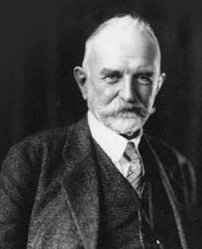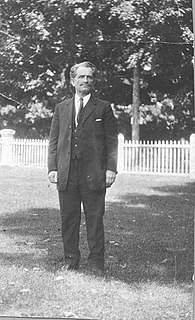A Quote by Wilhelm Wundt
On the other hand, ethnic psychology must always come to the assistance of individual psychology, when the developmental forms of the complex mental processes are in question.
Quote Topics
Related Quotes
Faculty Psychology is getting to be respectable again after centuries of hanging around with phrenologists and other dubious types. By faculty psychology I mean, roughly, the view that many fundamentally different kinds of psychological mechanisms must be postulated in order to explain the facts of mental life. Faculty psychology takes seriously the apparent heterogeneity of the mental and is impressed by such prima facie differences as between, say, sensation and perception, volition and cognition, learning and remembering, or language and thought.
ACT psychology is a psychology of the normal. A lot of the psychologies that are out there are built on the psychology of the abnormal. We have all these syndromal boxes that we can put people in and so forth. The actual evidence on syndromes is not very good. There's no specific biological marker for any of the things that you see talked about in the media. Even things like schizophrenia - there's no specific and sensitive biological markers for these things. There may be some abnormal processes involved, but vastly more of human suffering comes from normal processes that run away from us.
A writer must always try to have a philosophy and he should also have a psychology and a philology and many other things. Without a philosophy and a psychology and all these various other things he is not really worthy of being called a writer. I agree with Kant and Schopenhauer and Plato and Spinoza and that is quite enough to be called a philosophy. But then of course a philosophy is not the same thing as a style.
I have one other issue I'd like to throw on the table. I hesitate to do it, but let me tell you some of the issues that are involved here. If we are dealing with psychology, then the thermometers one uses to measure it have an effect. I was raising the question on the side with Governor Mullins of what would happen if the Treasury sold a little gold in this market. There's an interesting question here because if the gold price broke in that context, the thermometer would not be just a measuring tool. It would basically affect the underlying psychology.
Positivity psychology is part and parcel of psychology. Being human includes both ups and downs, opportunities and challenges. Positive psychology devotes somewhat more attention to the ups and the opportunities, whereas traditional psychology - at least historically - has paid more attention to the downs.


































